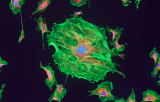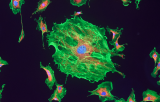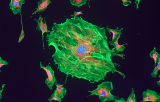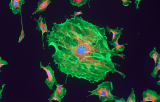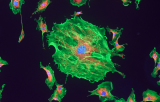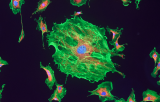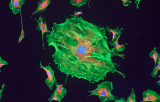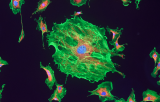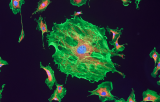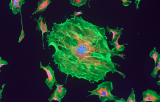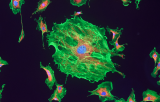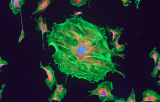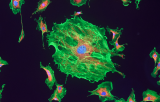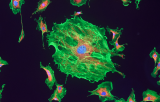
In situ hybridization probes - Acute myeloid leukemia (AML)
Acute myeloid leukemia (AML) is a cancer of the myeloid line of blood cells, characterized by the rapid growth of abnormal white blood cells that build up in the bone marrow and interfere with the production of normal blood cells. AML is the most common acute leukemia affecting adults, and its incidence increases with age. Although AML is a relatively rare disease, accounting for roughly 1.2% of cancer deaths in the United States, its incidence is expected to increase as the population ages.
Acute myeloid leukemia (AML) starts in the bone marrow, but most often it quickly moves into the blood, as well. It can sometimes spread to other parts of the body including the lymph nodes, liver, spleen, central nervous system (brain and spinal cord), and testicles.
Most often, AML develops from cells that would turn into white blood cells (other than lymphocytes), but sometimes AML develops in other types of blood-forming cells.
Acute myeloid leukemia (AML) has many other names, including acute myelocytic leukemia, acute myelogenous leukemia, acute granulocytic leukemia, and acute non-lymphocytic leukemia.


